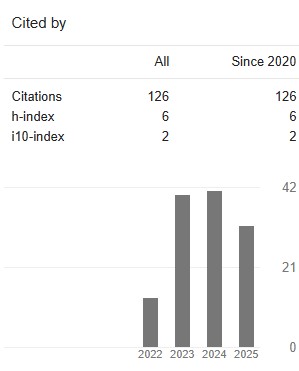Arisan Kurban dalam Perspektif Hukum Islam
“Arisan Kurban” in the Perspective of Islamic Law
DOI:
https://doi.org/10.36701/al-khiyar.v3i1.908Keywords:
sacrifice, Arisan Kurban, Islamic lawAbstract
This study aims to provide clarity regarding the law on the implementation of the sacrificial arisan in the view of Islamic law. This research uses a qualitative approach with library research methods and descriptive analysis. The results of this study indicate that the opinion of the majority of scholars regarding the law of sacrificial worship is that sacrifice is not obligatory but is sunnah for those who can afford it. For people who are less able but have a great desire to get closer to Allah through the performance of sacrificial services, there is nothing wrong with following the arisan method which includes elements of debt and credit. With a note if there is a guarantee of the ability to pay it. The implementation of the sacrificial arisan which is carried out by some members of the community is legally permissible or permissible because it fulfills the terms and pillars of the contract. The implementation of the qurban gathering is a new problem in muamalah which did not exist before at the time of the prophets and companions and has not been mentioned in the Qur'an or hadith, so it is returned to the original law of a problem. It is permissible as long as there is no reason to forbid it. The qurban gathering carried out by some people has fulfilled the principles of muamamalah, namely the principle of mutual consent between all parties. In carrying out this sacrificial arisan, it brings many benefits to people who are less fortunate but have a great desire to carry out sacrificial worship in order to draw closer to Allah. Another benefit that is also found in the implementation of this sacrificial arisan is that it can be a means to get closer to Allah and to establish friendship between all members of the arisan group. Given the many benefits derived from the implementation of the sacrificial arisan.
Downloads
References
Al-Qur’ān dan Terjemahnya
Al-Baqi, Muhammad Fuad Abd. Al-Lu’lu’ wa al-Marjan (Kuwait: Taba’ah al-Mathba’ah al-Ashriyah, 1977.
Al-Jaziri, Abdurrahman. Kitab al-Fiqh ‘ala Madzahib al-Arba’ah, Juz 1. Cet.III; Beirut: Dar al-Ihya at-Turats al-Arabi, t.th
Al-Zuhaili, Wahbah. Al-Fiqh al-Islami wa Adillatuh, Cet.3 Dimasyiq: Dar al-Fikr, 1989.
Ayyub, Hassan. Fiqih al-Ibadat al-Hajj (Cet. II; Beirut: Dar al-Nadwah al-Jadidah, 1986.
Ayyub, Muhammad. “tanya jawab”, http://m.facebook.com (Rabu, 28 Desember 2022)
Basri, Cik Hasan. Mode Penelitian Kitab Fikih. Cet. 1; Bogor:Kencana, 2003.
“Berapa Jenis Arisan yang Kamu Tahu? Ternyata Ada Banyak Macam Arisan”, http://www.simulasikredit.com (Rabu, 28 Desember 2022)
“Berbagai Jenis Arisan dan Manfaatnya”, Blog. http://www.adadasfasf.blogspot.co.id (Rabu, 28 Desember 2022)
Cahyono, Sistem Arisan Kurban dalam Perspektif Ekonomi Islam (Studi di Desa Lokasi Baru Kecamatan Air Priukan Kabupaten Seluma), Tesis, Fakultas Ekonomi dan Bisnis Islam IAIN Bengkulu, 2019), h. 83.
Fatwa Dewan Syari’ah MUI tentang Wadi’ah.
Hasan, M. Ali. Berbagai Macam Transaksi dalam Islam. Jakarta: PT Raja Grafindo Persada, 2004.
“Kompilasi Hukum Ekonomi Syari’ah”. http:/www.fikihkontemporer.com (Rabu, 28 Desember 2022)
Mahfudoh. Tinjauan Hukum Islam Terhadap Akad Arisan Kurban, Tesis, Fakultas Syari’ah Hukum Ekonomi Islam Universitas Islam Negeri SMH Banten, 2019), h. 67.
Majah, Al-Hafizh Abi Abdullah Muhammad al-Qazwini Ibn. Sunan Ibn Majah. t.t.: Dar Ihya al-Turats al-Arabi, t.th.
Mas’adi, Ghufron A. Fiqih Muamalah Kontektual. Cet.1, Jakarta: Raja Grafindo Persada, 2002.
Al-Naisāburī, Muslim bin al-Hujāj al-Qusyairī, Ṣahīh Muslim Juz 1 Dār al-Kutub al-‘Ilmiyah, Libnān 2010.
Purwanto, Agus. “Beda Jenis Akad Beda Konsekuensi”. http://www.mitrawakaf.com (Rabu, 28 Desember 2022)
Rusyd, Ibny. Rujukan Ulama Fiqih Perbandingan Mazhab Ahlussunnah wa al-Jama’ah, terj. Beni Sarbeni, Abdul Hadi, Zuhdi: Bidayatul mujtahid.
Rosmita, Rosmita, Muhammad Taufan Djafri, Maryam Mooduto, and Nasaruddin Nasaruddin. 2022. “Hukum Jual Beli Buah Langsat Dengan Sistem Jizāf (Studi Kasus Di Posigadan Kabupaten Bolaang Mongondow Selatan)”. AL-KHIYAR: Jurnal Bidang Muamalah Dan Ekonomi Islam 2 (2), 141-55. https://doi.org/10.36701/al-khiyar.v2i2.648.
Saputro, Ahmad Dwy Bayu. “Arisan sistem gugur”, http://www.ahmaddwybayusaputro.blogspot.com (Rabu, 28 Desember 2022)
Siyoto, Sandu dan M. Ali Sodik. Dasar Metodologi Penelitian. Yogyakarta: Literasi Media Publishing, 2015.
Tim Penyusun Pusat Bahasa, Kamus Bahasa Indonesia. Jakarta: Pusat Bahasa, 2018.
Al-Utsaimin Muhammad bin Ṣalih, Syarhu Riyādh al-Ṣālihin (Cet. 1; Madāru al-Waṭan, 2008)













